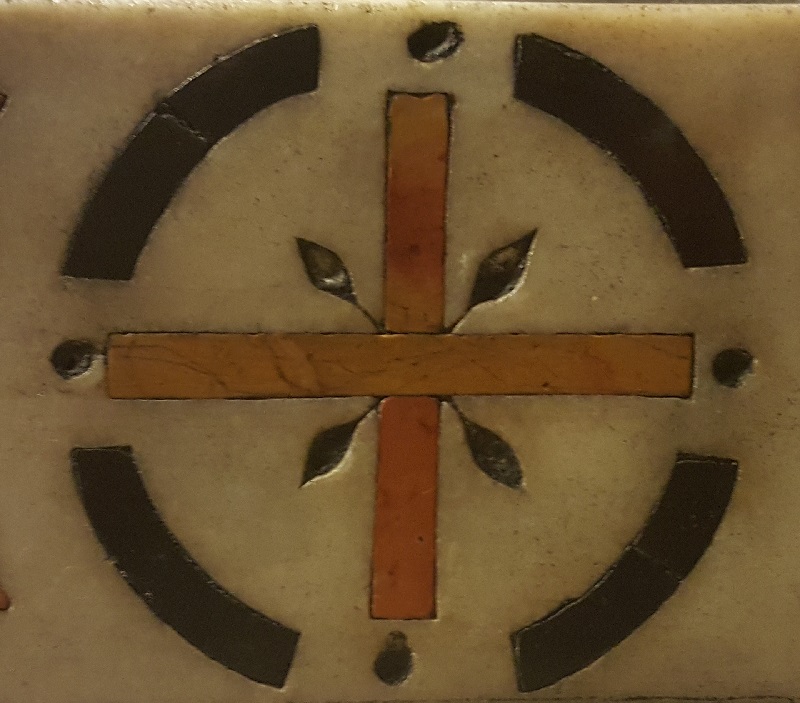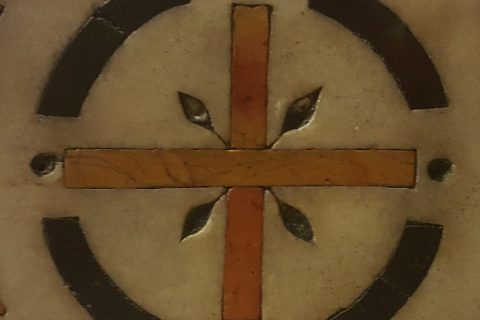
Part of the teaching of the Christian Church is that the family is the nucleus of the Church. The situation that Christian families in the Holy Land face includes the concerns or the safety of the family as well as opportunity for increasing the number of Christian families living there. The very core of the life of the Christian family who wishes to remain in Israel is threatened at its basic roots, the right of single Christians to meet, fall in love, marry, and create a family are also threatened. The obstacles Christian families encounter are detailed in the next section.
Restriction of movement of Palestinian Christians. Increasingly since the First Intifada, Palestinians have needed permits to pass through the checkpoints between the West Bank and Jerusalem. This has been, and continues to be, a barrier to family visits, school attendance, hospital appointments and attendance at religious ceremonies at holy sites in Jerusalem. Since the First Intifada, these checkpoints have become increasingly more permanent and extensive and take more time to pass through. This situation has affected both Christians and Muslims and has become worse since the Separation Wall was erected.
In June 2002, the Israeli government began construction of the Separation Wall between the West Bank and Israel. For the most part the separation wall between 9 to 12 meter high concrete walls, some parts is consisted of trenches, barbed wire and electrified fencing with numerous watch towers, electronic sensors and thermal imaging and video cameras. Currently the wall occupies about 123,000 dunums of land from the Palestinian side of the Green Line and could eventually extend a distance of over 815km. This tangible separation has created a feeling of isolation between the Palestinians living inside the wall and those living outside the wall. It has adversely affected almost 50% of the West Bank population by rejecting any chance for them to make a living, by being unable to cultivate their land, reach their work place or attend school on the other side of the Wall. It affects all aspects of communication, socialization, and family integration. The affected Palestinian Christians living in the West Bank are denied access into Jerusalem and consequently, are unable to meet and interact with other Christians the other side of the Wall.
The restrictions imposed reduce the opportunity of single Christians finding suitable spouses. This threatens the basic roots of the Church’s well- being and growth by making it difficult for singles to marry within their faith community, have children and promote family values. The Israeli government issued a “temporary law” in which Christians and Muslims who live in the West Bank are declared “resident aliens” according to Israeli legal practice. The Israeli government does not recognize them as natives, or as an indigenous people having the right to live where they were born or anywhere outside the West Bank. To illustrate the problem, consider the following account. A man, who is from Bethlehem, or another West Bank town, will not be granted residency in Israel (including Jerusalem) even if his wife is from Jerusalem or from elsewhere in Israel. Because of this, he cannot live with his wife there. If she has a Jerusalem identity document (ID) and she lives with her husband in the West Bank she loses her Jerusalem ID. Although husbands and wives may visit each other and have children, they can never live together permanently. This “temporary law” continues to be in effect to this day.
Another example is that of a Christian female from Bethlehem who is married to a Christian man from Jerusalem They have been married for 15 years. Five years after their wedding, she received approval for a temporary residency permit to live in Jerusalem, renewable after two years. Today, because of the “temporary law,” the husband still has to apply for a residency permit for his wife that is renewable every year. However, she is not allowed to drive a car in Israel, including Jerusalem, and is obliged to obtain a special entry permit twice a year from the military officials in the West Bank. To achieve this involves days or weeks and there is no guarantee of receiving the permit each time it is needed.
There are more than 200 families with similar problems, living in Jerusalem and the West Bank. There are cases where several Christian children, who were born in Jerusalem but are now citizens in other countries, are restricted entry into Israel due to their residency status in other counties and they may have to enter the West Bank via Jordan each time they visit. In the best-case scenario, they receive entry permits as tourists for three months when they visit their relatives living in their native city. Meanwhile, thousands of Jewish immigrants arrive in the country, obtain citizenship easily with full rights and may be given permission to live in the city of Jerusalem. They receive financial assistance for purchasing a new “home” and help finding jobs, because Israel is a homeland for Jews anywhere in the world.
Community level. This section continues with data that pertains to the communities’ approaches to dealing with the challenges imposed upon them. As Christian communities in the Holy Land, and Jerusalem in particular, several issues are presented that illustrate how families and individuals are affected as they try to maintain their ancestral roots in the country and also remain in communion with the worldwide Christian Church.
Family size. There are two primary factors contributing to the reduction in Christian population levels. First, Palestinian Christian families have a lower birth rate (1.6%) than their Muslim (2.4%) and equal to their Jewish (1.6%) counterparts. Christian Palestinians value education and often choose to provide expensive private education for their children, inside or outside the country. Second, many Christian families are leaving the Holy Land for a more hopeful future in other countries.
Housing. There is huge concern regarding the lack of housing for Christians living in Jerusalem and areas controlled by Israel and a desperate need for more housing. The lack of housing has a direct impact on social life and is one of the causes that lead to Christians leaving the Holy Land. The difficulties in maintaining and securing sufficient housing for Christians in Jerusalem, has been a concern for many years. Figures for the last two decades are presented here.
There is no concrete research regarding the number of housing unit need to be construct for Christians yet. Some researches believed that there is a need for more than 270 units needed in the City of Jerusalem, and more than 305 units outside the city of Jerusalem. The concerns, as expressed by the local church leaders, for housing have not diminished but increased over the following 15 years. According to the Franciscan Custody of the Holy Land, there are more than 650 requests for additional housing from Catholic families living in Jerusalem. This is notable, even when considering the high cost of renting housing in Jerusalem and the refusal of the Israeli government to issue building permits to non-Jews that are present in Jerusalem (or anywhere under Israeli jurisdiction). It would be much easier for Christians if they moved outside the municipal boundaries of Jerusalem. However, to do so would result in the eventual loss of their Jerusalem identity cards and consequently their right to a permanent residence in Jerusalem.
In addition, the local Christians living in Jerusalem who are from the middle class cannot purchase properties due to high cost. In order to build houses in Jerusalem there are two fundamental elements; land and money. The church officials in Jerusalem have contributed to the problem because they have land and money to build additional housing for rent to Christian families. The Churches in Holy Land own land within the municipality of Jerusalem and have the money and the ability to raise funds for the construction of new housing. Although the churches have planned several building projects for local Christians, they have been slow in the implementation of building these houses. Partly these plans have come to nothing because of the refusal of the Israeli authorities to grant building permits. This lack of progress may have affected the decision of some of the younger families to leave Jerusalem in favour of living in other countries where affordable home rental and ownership is a reality.
Fewer Christian communities. As has already been mentioned, Christian emigration from the Holy Land is not a new story and has been happening for decades. However, there has been an increase in the process since 1967. The Palestinian Christian communities are dwindling slowly and historical landmarks associated with Jesus Christ’s birth, ministry, and death are in danger of becoming merely tourist attractions for visiting Christians from other parts of the world, rather than associated with vibrant local Christian communities. Since the late 19th century, Christian families looking for better economic opportunity, freedom of social and religious expression and political stability have migrated from the Holy Land to better living and future in western countries where they have formed diaspora communities.
The results of the Sabeel Survey of 2006 showed several causes of emigration. In that report, 44.7% left to find work, 42.6% left because of the bad economic and political situation, 8.5% left to join family who had already left the Holy Land, and 4.2% left for work and study. Looking at this issue from a different perspective suggests that one of the causes of the Christian emigration phenomena is the lack of a sense of belonging, either to the Holy Land itself or to the Christian community there.
Rise of Islamic political ideology. The political instability in Arab countries, in particular, after the “Arab Spring,” has resulted in a significant growth in Islamic radicalism throughout the Middle East. The desire for violence in the name of Islam has been building through most of the 20th century. Islamic radicalism has tended to spring up into mass bloodshed periodically, usually in response to corrupt governments. Generally, it is an ineffective attempt to impose Islamic religious solutions on some social or political problem, several researchers believe that because of the political instability in Arab countries and the rise of Islamic radicalism ideology, persecution of Christians has significantly increased which has often led to their murder and imprisonment. It may come as no surprise that this has caused many of the remaining Christians in the Middle East to flee to western countries for safety.
It is important to note that Palestinian Christians in the Holy Land are not challenged by the moderate Muslims who live near them and they abide together in a respectful atmosphere. The Christians are more concerned with the Muslim extremists and the rise of the “Islamic political ideology.” The impact of religious extremism will be felt on the socio-economic front.
Several social problems facing Christians in the Holy Land, in particularly in Jerusalem, involve discrimination policies of the Israeli state towards non-Jewish communities and its occupation policies against Palestinians in general. Similarly, Palestinian Christians feel that the Muslim extremists are trying to impose Islamic rules and regulations to transform the Holy Land into a Muslim country. The combination of these two pressures has a negative effect on the lives of Palestinian Christians.


